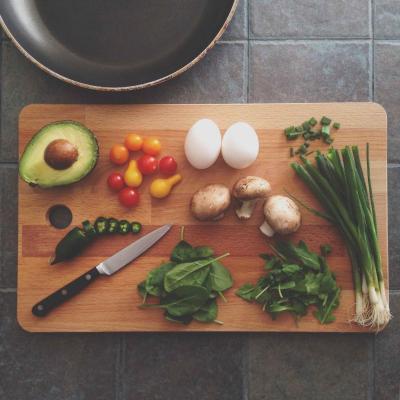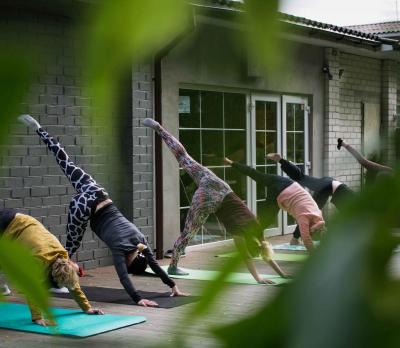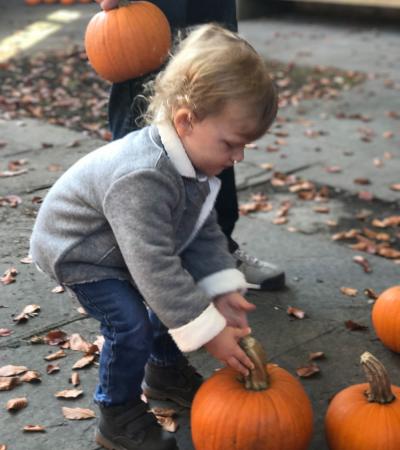The Cooperative Extension System, an agency of the U.S. Department of Agriculture, exists to “encourage healthful lifestyles” by providing “non-formal education and learning activities to people throughout the country.” It emerged hand-in-hand with the land-grant university system and, over time, evolved from a focus on agricultural education in rural areas (4-H is part of the extension system) to a broader focus on health and food in both urban and rural parts of the country.
A public library seeking to partner with the Extension system on health and wellness programs can do so in two ways: 1) By reaching out directly to Extension agents in your state and 2) By partnering with one of the more than 90,000 active Extension Master Gardeners spread across the country. My research on gardening programs in U.S. public libraries found that most develop in partnership with Master Gardeners, who collectively provide more than 5,000,000 volunteer service hours every year in communities throughout the country. In fact, you may find that a Master Gardener works at your library!
But Master Gardeners are just the tip of the iceberg when it comes to health and wellness programs that can be developed in partnership with the Cooperative Extension System. Here are some other programs that public libraries have done with their local extension agents.

Examples of libraries delivering programs with Extension agencies
In Georgia, the Cobb County Library partners with the University of Georgia Extension’s Cobb County Office for a variety of health and wellness programs targeted both at youth and adults. In Summer 2018, the library worked with the local 4-H Chapter develop summer reading programs focused on improving youth nutrition and physical activity.
This recurring program series was called 4-H Yoga & Healthy Living Program and featured extension agents coming to the library to lead youth yoga programs and talk about nutrition. For adults, the Extension offers programs on how to become a Master Gardener at the library, as well as a THYME to Read Book Club, in which participants read and discuss books related to food, agriculture and gardening.
In Virginia, the Loudoun County Library works actively with the Loudoun Office of Virginia Cooperative Extension to offer a variety of programs throughout the year. In addition to Master Gardener-led programs, which the library had offered for years, beginning in 2017 the library and the Extension formed an even closer relationship. New Extension-led programs on raising livestock in urban areas (e.g. backyard chickens) proved to be especially popular.
Susan VanEpps, Loudoun County Library’s programming and community engagement librarian, called partnering with Extension “a win-win for both organizations,” while Jim Hilleary, unit coordinator and Virginia Cooperative Extension agent for Loudoun County, said that “libraries allow us portals to the public and the community, and that’s very valuable. By working with the library, we go to people’s neighborhoods. What we bring in return, that no one else can do, is tap into Virginia’s land grant universities where all our information comes from. In partnership with Loudoun County Public Library, we’re bringing that science-based information into the community.”
Extension agents no longer only focus on rural America; urban areas across the country also have Extension agents. For instance, the New York Public Library has worked with Cornell University’s Extension Agents to offer Cornell@NYPL. The program has brought over 77 programs offered throughout the library’s branches on health, nutrition and financial literacy taught both by Cornell faculty and by New York City cooperative extension experts.
In urban Nevada, the public libraries in Reno and Las Vegas worked with the University of Nevada Cooperative Extension to offer a program called Little Books and Little Cooks. The program focuses on preschool children and their caregivers to boost healthy eating, literacy, parent-child interaction and school readiness. Since 2012, the program has provided families with opportunities to cook and read stories together. You can read more about this program and how it works on the University of Nevada Cooperative Extension’s Website.
Forming programming partnerships with extension agents

Indeed, across the country public libraries are seen as core partners of Cooperative Extension agencies. In fact, the University of Rhode Island’s Cooperative Extension Strategic Plan, 2018-2022, states that one of their goals is to “expand partnerships with schools, public libraries, youth-serving agencies and community organizations to provide relevant resources and information.”
Nonetheless, these partnerships do not materialize out of thin air. In both Loudoun County, Virginia, and Cobb County, Georgia, librarians and Extension agents met multiple times to figure out how best to work together to develop high-impact health and wellness programs for youth and adults.
The first step is finding your local Extension agent. This website on the USDA’s National Institute of Food and Agriculture will enable you to drill down to your particular state’s Extension office, but then you will have to find the local Extension agent that serves your county or region. For instance, the Oklahoma Department of Libraries maintains a list of partners with which it has worked to offer Health Literacy programs throughout the state in public libraries. This list shows that during 2017-2018, in at least 11 of Oklahoma’s 77 counties, local public libraries have partnered with county extension agents to offer health literacy programs.
Even more programming possibilities
Finally, while researching this blog post I analyzed the ALA's Programming Librarian Interest Group on Facebook to see what else librarians had done with their local Cooperative Extension office.
Librarians reported offering programs with Extension agents to develop nutrition programs, including Cook Smart, Eat Smart; food prep and canning; Instant Pot and pressure cooking; dehydrating food; pickling vegetables; composting; cooking for teens; budgeting to make sure you have enough money to eat healthy and well; and general nutrition and cooking programs using healthy ingredients. (Multiple librarians noted that Extension agents are certified to prepare and serve food.)
Librarians also reported working with Extension agents to develop programs focused on how to grow your own food, including programs on starting a home garden; starting a community garden at the library; starting a seed library; and kids’ gardening. One librarian said that they worked with their Extension agent to develop five programs during summer reading in which kids plant pole beans and track their growth during the length of the program. Another librarian recommended working with the Extension agents to set up a local farmers market at the library, an idea that the Public Library Association/Institute of Museum and Library Services recently highlighted in Richland County, South Carolina.
The huge number and variety of programs public librarians mentioned doing with their local Cooperative Extension Agents and Master Gardeners illustrates how important they are. If your library does not already work with the local Extension, what are you waiting for? If your library also works with Master Gardeners, take the partnership to the next level by contacting your local Extension agent directly to propose an even deeper inter-institutional partnership. They are your library’s go-to partner for all programs related to gardening, nutrition, agriculture and more!


